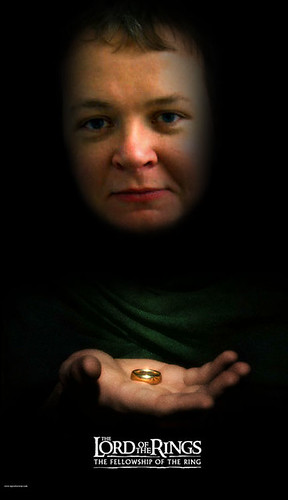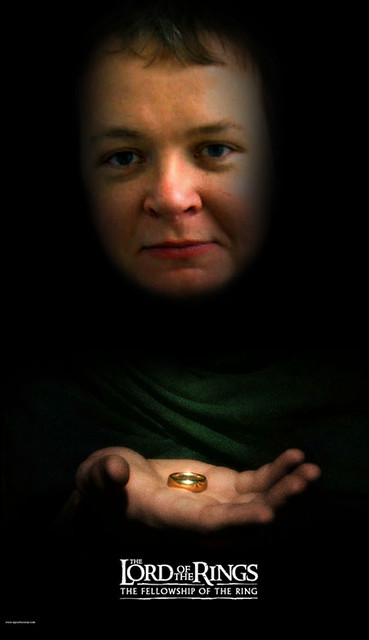Today I learned that over a year ago, one of our children was “banned” from the Club Penguin website for 24 hours for using profanity. I learned about this when I was checking out the “Ban History” on my Club Penguin “Parent Tools” page. Obviously that isn’t a “web history” page I visit very often.
This discovery led to some VERY good and important conversations with our child, even though the event itself took place over a year ago. I wrote a bit more about the theological aspects of these issues on the post on my Christian blog, “An Opportunity to Discuss Confession and Forgiveness.” In this post, I want to reflect briefly on the value of having digital documentation of online behavior in secular contexts.
Digital documentation is important. There are NOT any 100% safeguards that we can put into place, at home or at school, which can guarantee our children/students won’t encounter objectionable content online. There is a big different between “accidentally” encountering objectionable content and intentionally trying to find it. Plato’s parable about the “Ring of Gyges” is very relevant in this context. Our perceived level of anonymity/invisibility matters.
There are different ways to encourage perceptions of digital/online accountability for students at school in 1:1 laptop settings, including random ARD screen checks as well as laptop hard drive inspections. It’s important to have ways of remaining digitally accountable at home, too. My wife regularly looks at the text message history of both our kids who have cell phones, and this has led to many good conversations as well. Of course it’s possible for a child/individual to delete a conversation, erase web history, use an “incognito” browser window, change DNS settings to bypass OpenDNS at home, or do other things to circumvent accountability measures. If kids want to get around accountability measures to access digital content we don’t want them to see/view, chances are VERY high today they can find ways to do it.
Given these facts, I continue to maintain that open/regular communication is the KEY. Digital documentation, like that provided by the Club Penguin “Parent Tools” features, helps.
If you don’t currently use OpenDNS (which is free) on your home Internet connection, I strongly encourage you to check it out. In the past, the records it keeps of blocked website domains have been VERY valuable in our home for the same reasons the Club Penguin Parent Page resources were today. They can provide documentation of online behavior which otherwise might remain hidden and therefore “undiscussed” between members of our family.
Internet filtering tools tend to be employed in far too conservative ways in many public schools today, unfortunately. My awareness of those issues and desire to constructively advocate about them encouraged me to start the “Unmasking the Digital Truth” project several years ago, along with the Balanced Filtering Project. I hope to expand and further develop those initiatives in the months ahead.
I’m an advocate for BALANCED Internet filtering, both at home and at school. I’ve experienced the value of having some ROUTER BASED content filtering in place several times in the past decade. See my March 2008 post, “The Value of OpenDNS (free) content filtering at home” for an example.
In writing this post, I just checked our OpenDNS blocked domains log, and plan to have a conversation with at least one member of our family tomorrow about some of what I saw. OpenDNS at this point doesn’t give information as detailed as “this device accessed this blocked website at this date/time,” but it does provide enough information to start a conversation.
Eventually, I’d like to see schools provide access to web history and blocked/banned website access on the school content filter on the same interface parents use to see student grades. Given the pace of the typical K-12 school in addressing digital citizenship issues, however, I’d guess we’re several decades away from seeing that kind of thing as commonplace. Internet access options like cell phone tethering and cell network hotspots are changing these dynamics, however, especially in urban areas where higher speed cell networks are in place. There are no panaceas, but there ARE tools which facilitate opportunities for good conversations about Internet safety and ethics.
I think we all need to adopt a “defense in depth” strategy, which is a term I heard at a Microsoft Internet security workshop about eight years ago I attended at Texas Tech. There isn’t a single strategy that is going to protect your network from Internet threats, anymore than there is a single approach which is going to guarantee your child will make good choices online as an ethical and responsible free agent. Conversations and open communication are the key.
For additional resources and ideas along these lines, check out these past posts:
- Internet Safety and Digital Citizenship Presentations for Students, Parents and Teachers (August 2010)
- MinistrySafe Online Video Training for Youth Protection from Sexual Abuse (January 2012)
- Webcam and PSP Porn: More reasons for ongoing digital dialog (July 2008)
If you enjoyed this post and found it useful, subscribe to Wes’ free newsletter. Check out Wes’ video tutorial library, “Playing with Media.” Information about more ways to learn with Dr. Wesley Fryer are available on wesfryer.com/after.
On this day..
- “Drawing as a Thinking Process” by Manuel Herrera – 2023
- Email Mail Merge Custom PDF Certificates with autoCrat for Google – 2016
- Workflow: Moderate Student Email-Posted Videos to YouTube – 2015
- No-Edit Audio Podcasting Videoconference (referenced links) – 2014
- Brookstone Mini-Projector for iPhone4 – 2012
- All bloggers are not scrape blog pirates – 2011
- High Stakes Testing Must End in the USA – 2011
- Local Advocacy Update in Alabama by Bruce Ellard – 2011
- 2011 Alabama Legislative Session Update (10 March) – 2011
- Oklahoma City Podcasting Club – March 2010 Meeting Notes – 2010




Comments
2 responses to “A Story about Web Accountability and Club Penguin”
[…] I’m going to write more about this on my secular blog focused on educational technology and le…, but I wanted to write about this here to share some of the discussions we had today about confession and forgiveness. Our child said they had asked God to forgive them for this during our church service “prayers of confession,” but the emotional response and tears to this (as well as shame) told me this wasn’t something that was entirely “in the past.” This gave both my wife and I opportunities to talk with the child about what it means to confess our sins, how God is gracious to forgive us, and that means our sins are washed away and in the past. […]
I think tools like Club Penguin and OpenDNS would be very
useful in school and home environments. If children are aware that their
activity is being monitored, they will be more conscientious of what they do
online. My children are still too young to use the Internet, and it’s scary to
think how there is yet another place we need to protect them and there is no
guarantee that they will always be safe. I will be looking into these tools to
use for my students. I also hope that schools will begin to monitor web history
and blocked/ banned site access to protect students,and I agree that open
conversations and communication about this is our best tool.